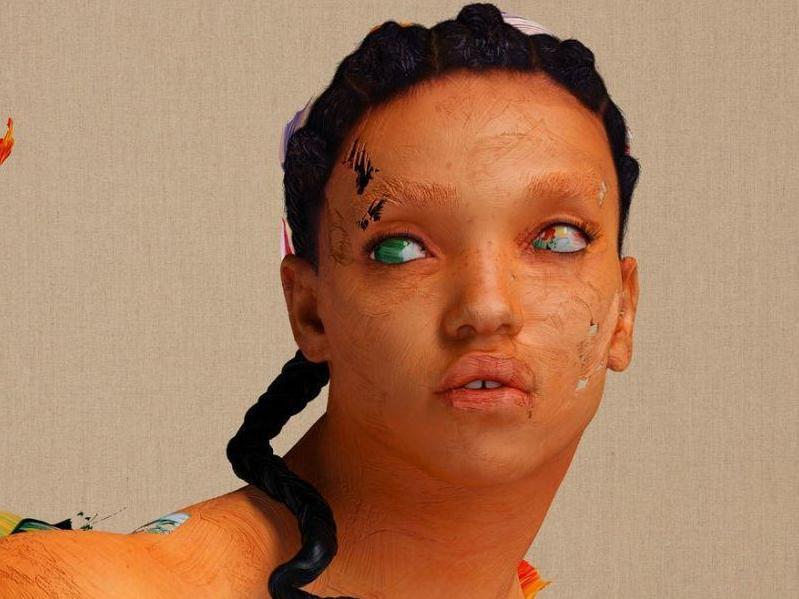FKA twigs review, MAGDALENE: The sound of a woman teetering on the brink of collapse
The follow-up to 2014’s LP1, made in the wake of heartbreak, is twigs at her sorrowful, scrappy best

FKA twigs made her second album during a period of intense self-isolation. Suffering from a heartbreak she describes as “all-encompassing” – she split from her long-term boyfriend Robert Pattinson in 2017 – the 31-year-old began wandering the streets alone, dressed in long medieval dresses. From this fog, somewhere between London, New York and Los Angeles, MAGDALENE appeared.
“Making this album has allowed me, for the first time, to find compassion when I have been at my most ungraceful, confused and fractured,” she writes in the album’s press notes. “I stopped judging myself, and at that moment found hope in MAGDALENE.” At times, MAGDALENE is just as ungraceful, confused and fractured as its creator was – a rush of baroque electronics, industrial noise, opera, synths, autotune and precarious falsetto. The follow-up to 2014’s LP1 is the sound of a woman teetering on the brink of collapse, gathering herself, and then erupting into a kind of defiance.
The album opens with an ending: “If I walk out the door, it starts our last goodbye,” she sings on “thousand eyes”, whose choral eeriness – the first half wouldn’t sound out of place in a Catholic mass – was inspired, apparently, by Enya.
“Home with you” is a stream-of-consciousness mess of feelings, with the disorienting dizziness of a track being played backwards: “I’m so wired, fought it, seen it, tried it, I die for you, on my terms, when I get my lessons learnt.” Later, twigs sings of “apples, cherries, pain” – an allusion to the six fruit-sized fibroids she had removed from her uterus in 2017. It was while she was recovering from this operation that she took up pole dancing (finding strength in weakness is her thing, it seems) – a skill she uses to startling effect in the video for “Cellophane”, a “particularly desperate” song, she told i-D, in which she pleads, “Didn’t I do it for you? Why don’t I do it for you?”
“Holy terrain” grapples with the struggle to keep someone’s attention once they realise you’re safely committed to them – “Will you still be there for me once I’m yours to obtain?” – while “mirrored heart”, which evokes David Bowie’s 1986 Labyrinth soundtrack, begins with a sound that could either be a wail or a sigh. “Did you want me? No, not for life.”
On “daybed” – whose melody is repeated so persistently that it becomes almost a chant – heartbreak leads to a numb inertia, in which abandoned chores and melancholic masturbation are the order of the day. “Possessive is my daybed/ Vacant are my nightmares/ Rest becomes my nowhere … Active are my fingers/ Faux my cunnilingus/ Dirty are my dishes.”
The title character finally crops up on “mary magdalene”, on which twigs declares over frictional static, “A woman’s work/ A woman’s prerogative/ A woman’s time to embrace/ She must put herself first.” She was inspired by the biblical anti-heroine – “a herbalist and a healer”, according to twigs, who is reduced in scripture to simply a “prostitute”. “As a woman, your story is often attached to the narrative of a man,” she said. “No matter what you’re doing or how great your work is, sometimes it’s as though you have to be attached to a man to be validated.”
I suppose Pattinson is Jesus in this analogy – but it is twigs’ Magdalene who is the sorrowful, scrappy star of this show.
Join our commenting forum
Join thought-provoking conversations, follow other Independent readers and see their replies
Comments
Bookmark popover
Removed from bookmarks